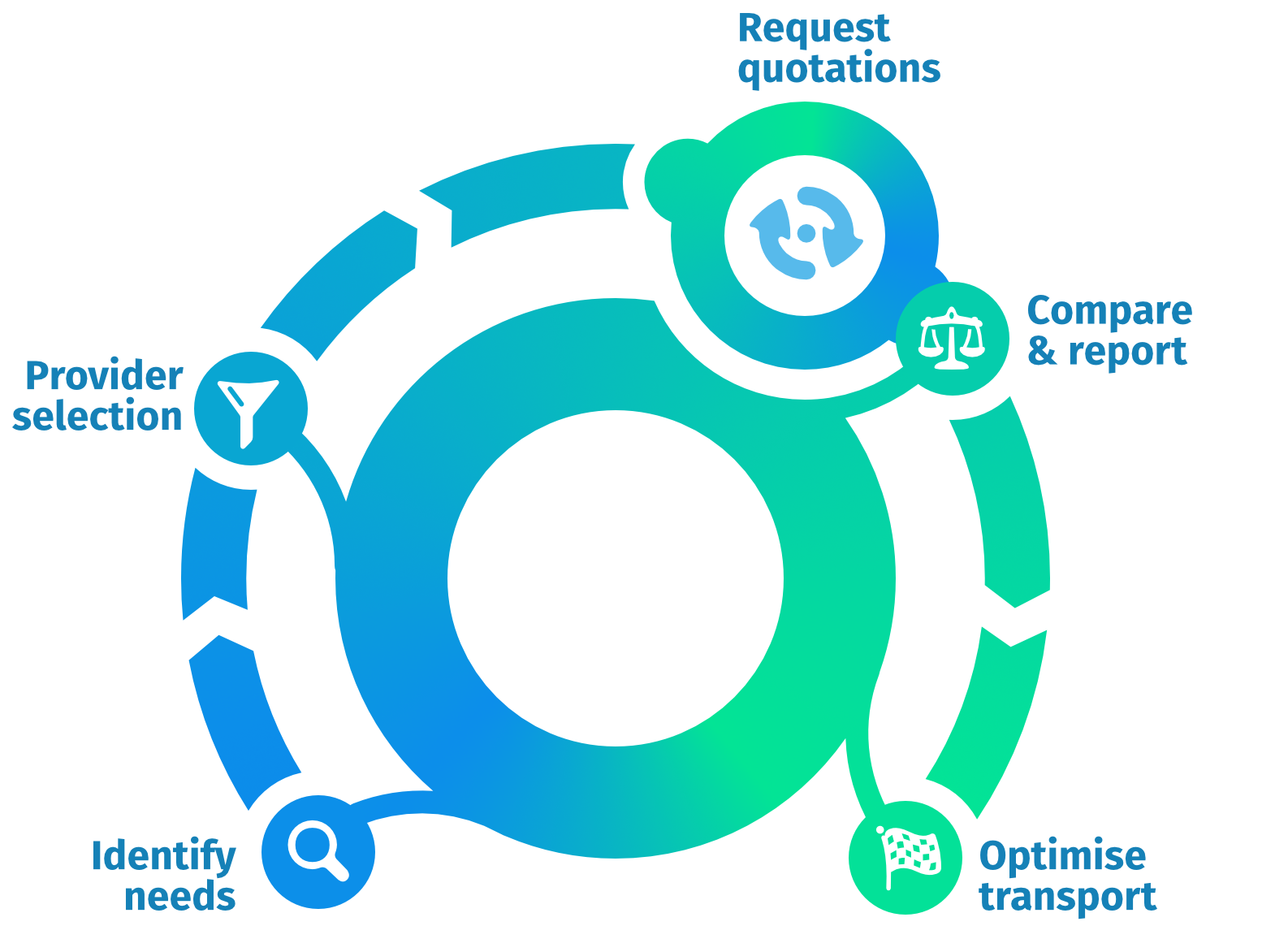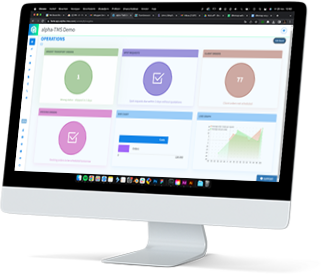Transport and Logistics Netherlands (TLN) has expressed its ambition (see link) to halve CO2 emissions from road transport by 2030 compared to 2015. As the implementation of the Paris Climate Agreement requires the transport sector to contribute as well.
Digitalisation (smarter) and sustainability (cleaner) are currently the magic words when it comes to industrial policy in the Netherlands and Europe. Both words are also a common thread within Transinnovate. We are often asked how sustainability is exactly woven into our vision and activities. This blog gives the answer to that question.

Less and smarter transport
The best way to make transport of people and goods more sustainable is by transporting less and/or smarter. The COVID-19 pandemic has shown that we can work together quite well remotely. For people, “less travel” and “more digital collaboration” will continue as a trend. For goods, the situation is slightly different, but the pandemic has also shown that large dependencies on production or sourcing from Asia also have disadvantages.
Transinnovate likes to think along with supply chain choices and their impact on transport costs, as well as sustainability. This includes strategic choices in the areas of warehouses or factories or consolidating smaller shipments into fewer but larger shipments, planning smarter transport routes, etc.
In addition, we promote working from home and online collaboration between locations, with our transport management software (TMS) applications. With this, shippers can manage, analyze, and keep an overview of their operations anywhere, anytime. Traveling to the office is no longer necessary, while management has control, insight, and an overview.
Cleaner vehicles
Transinnovate also closely follows the developments towards “zero-emission” transport, and actively supports a number of initiatives. Two examples of companies that we support in realizing their innovations are Ampaire (regional electric flying) and Computed Wing Sails for more sustainable large shipping.
Regional (up to 500 km) electric flying is a solution for passenger transport, especially in places where the train and road are not an alternative. Initially, this will be hybrid electric. By 2025, a lot will already be possible. Ampaire has a pragmatic approach by first retrofitting the existing fleet, to quickly convert them to ultimately lead to new aircraft concepts.
Computed Wing Sails develops an innovation that can reduce emissions from large shipping. 90% of all cargo in the world goes by ship, and shipping is also getting stricter environmental standards. Large CWS wings provide extra propulsion in almost all wind conditions. They are sustainable, foldable, and can tack through a clever mechanism.
With the rise of e-commerce, there has also been an increased demand for smart and effective “last-mile” distribution, such as electric city vehicles and cargo bikes. Drones and Urban Air Mobility will also play a bigger role. Experimentation has already begun. Before it is widely used, there are still some hurdles to overcome in terms of automation, safe airspace use, and infrastructure.
Optimal use of clean(er) vehicles
If you, as a shipper, start purchasing freight, you should take sustainability into account. This can be done by demanding certification such as Lean & Green. But you can also agree on sustainability objectives yourself. Transinnovate can help with the development of smart and measurable criteria during a tender or RFP.
Transport costs are often determined by a significant part of fuel costs (usually between 20-25%). Carriers with a network that better matches shippers’ shipment profile travel less kilometres or less frequently with (half) empty trucks on the routes. Therefore, lower freight costs and sustainability often go hand in hand.
Change the status quo!
In short, Transinnovate is active from vehicle design to smart use in operations.





